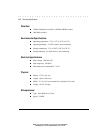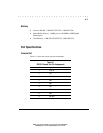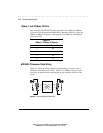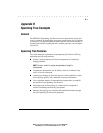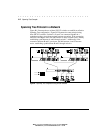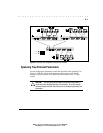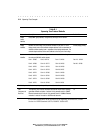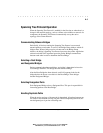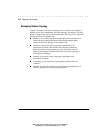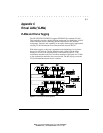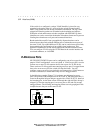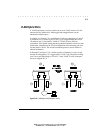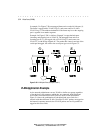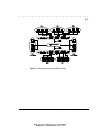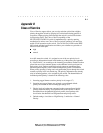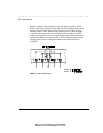
. . . . . . . . . . . . . . . . . . . . . . . . . . . . . .
&
7TERRMRK8VII'SRGITXW
;VMXIV
*VER7TVEKIRW
4VSNIGX
7TERRMRK8VII'SRGITXW
'SQQIRXW
*MPI2EQI
CFHSG
0EWX7EZIH3R
%1
6IQETTMRK2IX[SVO8STSPSK]
If there is a change in the network topology due to a failure or the removal or
addition of any active components, the active topology also changes. This may
trigger a change in the state of some blocked ports. There are five (5) states that
the ports can be in for spanning tree:
■
Blocking: A port in this state does not participate in the transmission of
frames, thus preventing duplication arising through multiple paths
existing in the active topology of the bridged LAN.
■
Listening: A port in this state is preparing to participate in the
transmission of frames. The transmission of frames is temporarily
disabled in order to prevent temporary loops, which may occur in a
bridged LAN during the lifetime of this state as the active topology of
the bridged LAN changes.
■
Learning: A port in this state is preparing to participate in the
transmission of frames.
■
Forwarding: A port in this state is participating in the transmission
of frames.
■
Disabled: A port in this state does not participate in the transmission of
frames or the operation of the spanning tree process.



